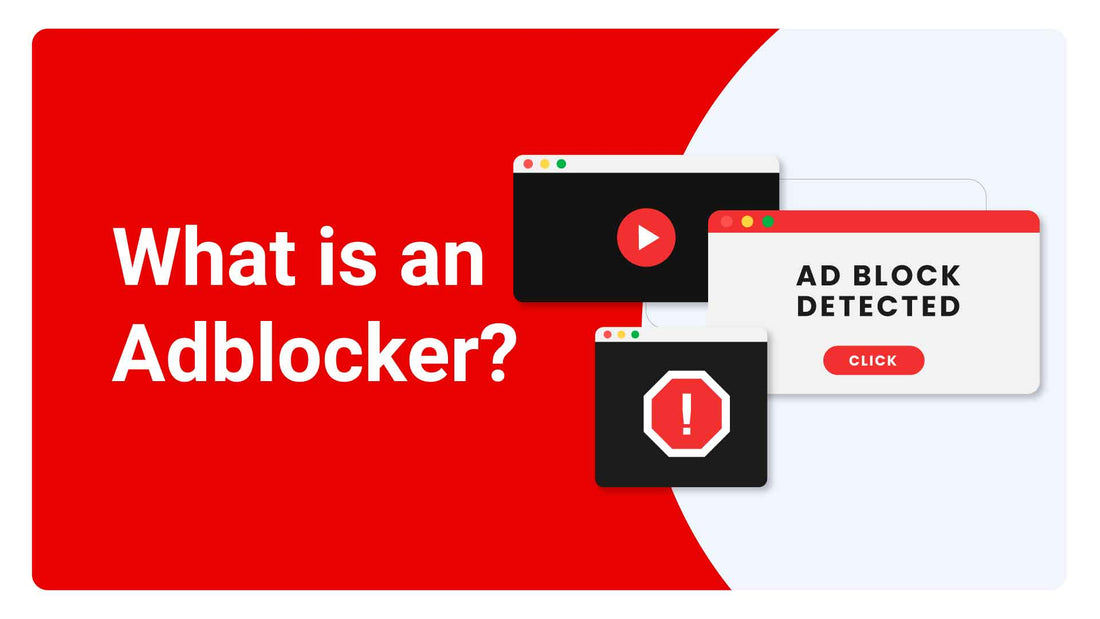
What is an Adblocker? All You Need to Know
Share

In today’s digital age, online advertising has become an integral part of our online experience, with ads permeating virtually every website and platform we visit. However, the incessant bombardment of advertisements can often disrupt our browsing experience, compromise our privacy, and consume excessive data. This is where adblockers come into play.
What is an Adblocker?
An adblocker is a software tool designed to intercept and block advertisements from appearing on webpages, providing users with a cleaner and more streamlined browsing experience. In this article, we will delve into the world of adblockers, exploring their functionalities, benefits, controversies, and their profound impact on the evolving landscape of online advertising.

At its core, an adblocker is a software tool that empowers users to take control over the advertisements they encounter while browsing the internet. It acts as a gatekeeper, preventing ads from infiltrating your screen and disrupting your online activities.
Adblockers come in different forms, providing flexibility and customization options to suit your browsing needs. Browser extensions are one popular type of adblocker, which you can install directly into your preferred web browser. Alternatively, you can opt for standalone software applications that work independently from your browser, offering comprehensive ad-blocking capabilities across various applications and devices.
Impact of Adblockers

Adblockers have undoubtedly revolutionized the way we interact with online advertisements. While they empower users with control and a cleaner browsing experience, their widespread adoption has left a lasting impact on various stakeholders in the digital ecosystem.
- Challenges faced by advertisers and content creators: The rise of adblockers has presented a significant challenge for advertisers and content creators who rely on revenue generated from online advertising. Advertisers must navigate new strategies to connect with their target audience effectively.
- Decreased revenue for websites: Websites that depend on advertising as their primary revenue source have felt the impact of adblockers acutely. As more users adopt these blockers, revenue declines.
- Evolution of advertising practices: Advertisers and content creators are exploring new strategies, such as native advertising, to engage users in a less intrusive manner.
- Alternative revenue models: Many websites are adopting subscription-based models or offering premium content to generate revenue directly from users.
What Are the Controversies and Criticisms Surrounding Adblockers?
While adblockers have gained popularity, they haven’t been exempt from controversies and criticisms. Here are some key debates:
- Ethics of blocking ads: Critics argue that blocking ads deprives content creators and website owners of their deserved revenue, potentially jeopardizing the sustainability of free online content.
- Sustainability concerns: Adblockers may force content creators to adopt paywalls or subscription models, limiting access to free content for users.
- Impact on small businesses: Small businesses and independent creators who heavily rely on ad revenue face significant challenges if their ads are consistently blocked.
- Counterarguments: Proponents believe adblockers restore balance in the digital space, encouraging advertisers to adopt less obtrusive practices.
Conclusion
Adblockers have transformed the way we interact with online advertisements, providing users with the power to control their browsing experience. By blocking intrusive ads, ad blockers allow individuals to enjoy a cleaner and more streamlined online environment, safeguard their privacy, and enhance browsing efficiency. However, the use of ad blockers has sparked ethical debates and concerns about the sustainability of free online content, prompting users to strike a balance between ad blocking and supporting content creators. By responsibly whitelisting websites, considering alternative means of support, and providing constructive feedback, users can navigate the ad-blocking landscape while fostering a sustainable ecosystem. As the digital landscape continues to evolve, ad blockers will undoubtedly play a pivotal role in shaping the future of online advertising and user-centric browsing experiences.
FAQs
What is an adblocker?
An adblocker is a software tool that prevents advertisements from being displayed on websites, giving users a cleaner and less intrusive browsing experience.
How does an adblocker work?
An adblocker works by analyzing the content of webpages and blocking the scripts, codes, or elements associated with advertisements, preventing them from being loaded and displayed on the user’s screen.
Are adblockers legal to use?
Yes, adblockers are legal to use. Users have the right to control their browsing experience and choose whether or not they want to see advertisements while visiting websites.
Can adblockers block all types of ads?
While adblockers are effective at blocking most traditional types of ads, such as banners and pop-ups, some ads may bypass adblockers through various techniques. However, adblockers constantly update their filters to keep up with new ad formats and minimize the number of ads that slip through.
